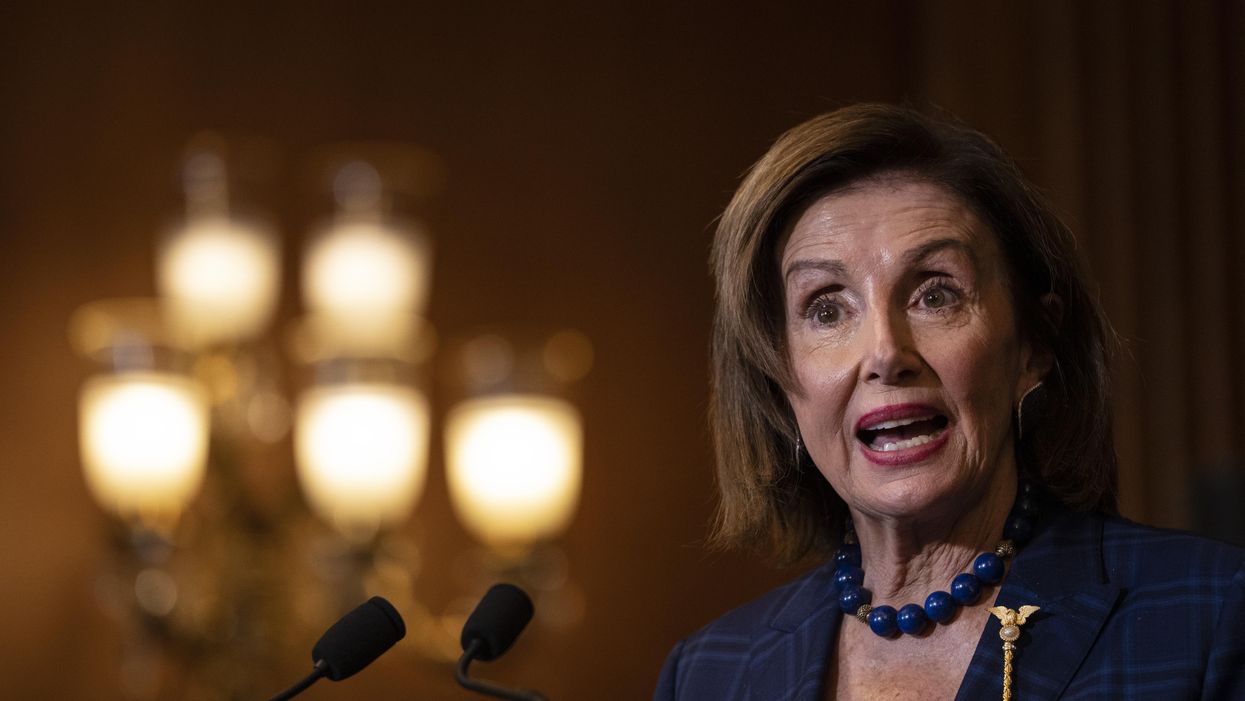At the onset of the Covid-19 pandemic, the House of Representatives adopted a new rule allowing members, for the first time, to cast votes remotely via a proxy.
Now, with the Delta variant on the rise, Speaker Nancy Pelosi plans to extend the use of proxy voting through the fall, and possibly until the end of the year, Axios first reported.
Although not without its criticisms, this procedural change has kept congressional operations afloat at a time when it's been unsafe for members to convene in person.
During the public health emergency, proxy voting allows House members who are unable to vote in person to designate a colleague to record an in-person vote for them, under strict instructions. A member may vote on behalf of up to 10 of their colleagues. The procedural change also allows hearings to be conducted virtually.
This emergency measure was first enacted in May 2020 and has been extended every few months since as the pandemic has persisted. The latest extension is set to expire Aug. 17. Currently, 126 House members have active proxy orders in place.
When proxy voting was first adopted, however, GOP House members sharply criticized its use, filing a federal lawsuit that claimed the voting method was unconstitutional. The suit was ultimately dismissed in August 2020.
More recently, however, proxy voting has become a tool of convenience for both Republicans and Democrats. With most members of Congress vaccinated, lawmakers are now using remote voting to spend more time in their districts, attending campaign events and avoiding a long commute to Washington.
To prevent proxy voting from being misused in this way, Marci Harris, CEO of the nonpartisan civic engagement platform Popvox, said clear guidelines need to be set around how members should use remote voting.
"That abuse — and the failure of the House to hold members who violate the rules to account — dilutes the important continuity function that proxy voting (or other forms of remote voting) serves," Harris said.
Proxy voting has been an important tool for Congress during the pandemic, and it should continue to be considered for future emergency situations, Harris added. Last year, in the early days of the pandemic, her organization participated in mock remote hearing exercises to test the viability of virtual congressional proceedings during the pandemic. The exercises were successful and overwhelmingly supported by the former members of Congress, from both parties, who participated.
Moving forward, expansions to proxy voting should be considered, said Daniel Schuman, policy director at Demand Progress, another organization that participated in the exercises. For instance, he would also like to see the Senate adopt some form of remote voting.
But at the very least, Schuman said, while there is still a public health crisis, the current system should remain in place so that members who are immunocompromised or have young children can continue to safely vote on legislation.
"Proxy voting has allowed the Congress to stay open in a circumstance where they wouldn't have necessarily been able to do as much otherwise," Schuman said. "Every single American deserves to have representation in Congress, and this is a mechanism to ensure that everybody's representative who is mentally capable of participating is able to do so themselves."




















Trump & Hegseth gave Mark Kelly a huge 2028 gift